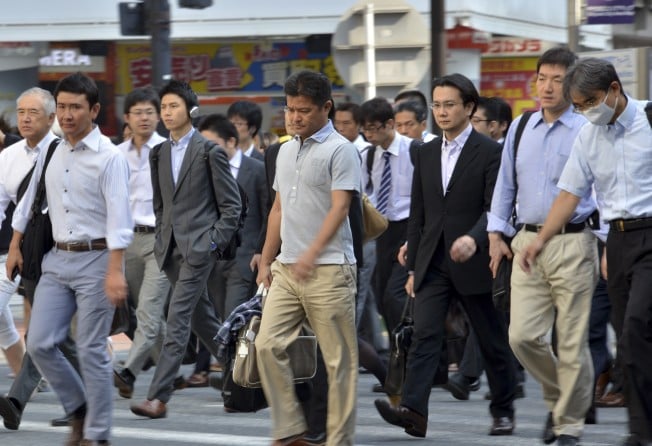Chinese thieves arrested for spate of hotel robberies targeting snoring Japanese salarymen
- They listened out for sleeping guests before sneaking in and taking thousands of dollars worth of valuables
- Police admitted to being ‘amazed’ at the suspects’ ingenious methods of gaining access to rooms without their occupants realising

Three Chinese men who chose hotel rooms to rob by listening out for snoring guests have been arrested in the southern Japanese city of Fukuoka, according to local police.
Liu Chenmin, a 44-year-old taxi driver from Jiangxi Province, was arrested along with Lai Zhenchun and Liu Minzhong as they flew into the city’s airport, the Nikkan Gendai news magazine reported.
All three were charged with 21 robberies in the cities of Osaka, Okayama and Fukuoka, which allegedly earned them around Ұ3 million (HK$211,830) over a series of trips to Japan.
Police admitted to being “amazed” at the suspects’ ingenious methods of gaining access to hotel rooms without their occupants realising.
During questioning, the three men said they purposely selected business hotels that catered to busy salarymen on work trips. Entering the hotel in the early hours of the morning, they would pause outside the door of a room and select those with the audible sound of snoring inside.
Taking advantage of the relatively wide gap under the room door – designed to allow a morning newspaper to be slipped beneath – one of the team would slide an L-shaped wire into the room and manipulate the lock from inside.
While the others kept watch, one of the men would quickly take cash, computers, mobile phones and any other valuables.
The suspects told police they wore stockings on their hands to not leave fingerprints and sold their ill-gotten gains back in China.
Authorities finally tracked the men down by examining security camera footage and after finding a copy of one of the men’s passport at a hotel in Kobe. All three had already returned to China, but were arrested when they tried to re-enter Japan in November last year.
Police publicised the case as a warning to the public to take extra precautions even when they believe they are safe from thieves.
Jake Adelstein, editor of the Japan Subculture Research Centre and an authority on the underworld, said there was good reason for concern.
“This appears to have been a crime of opportunity rather a group linked to organised crime here or in China, although with it becoming easier to come into Japan on a short-term tourist visa and the easy pickings here, there is the distinct possibility that gangs will begin to link up,” he said.
“Chinese criminals might attract suspicion if they started trying to pawn stolen items in Japan, so it would make sense for them to work with Japanese to carry out that side of these crimes and I think it is very possible that we are going to see more of these sorts of collaborations.”